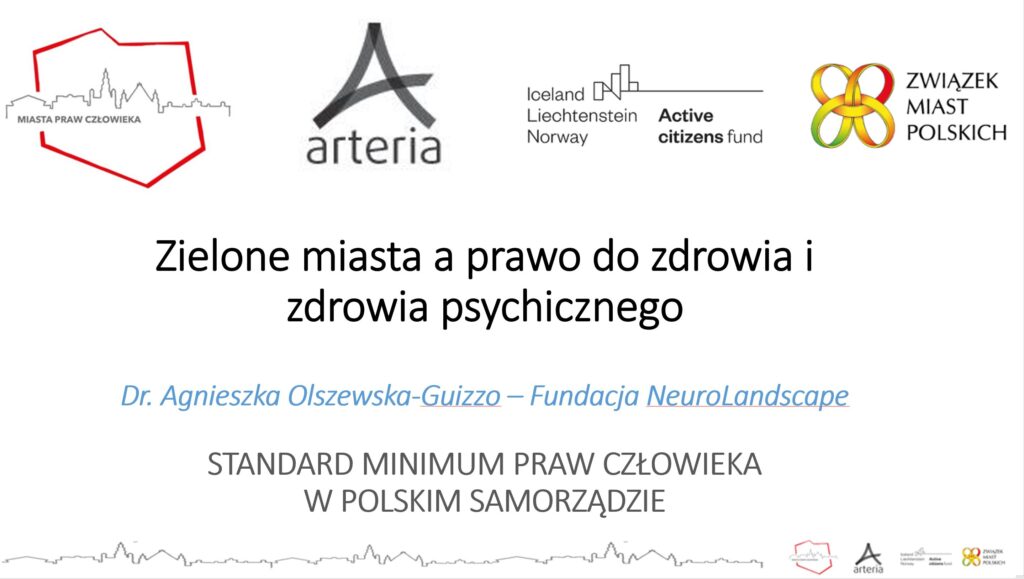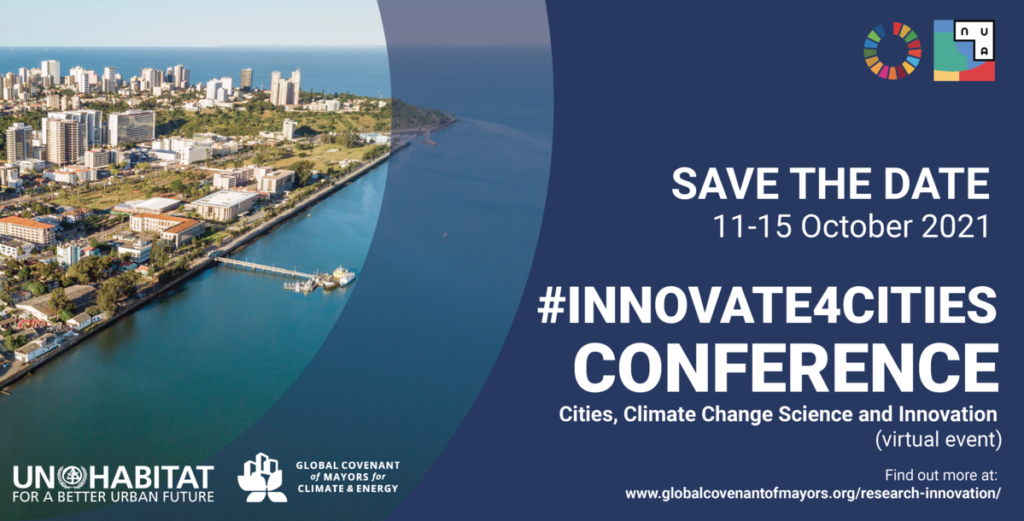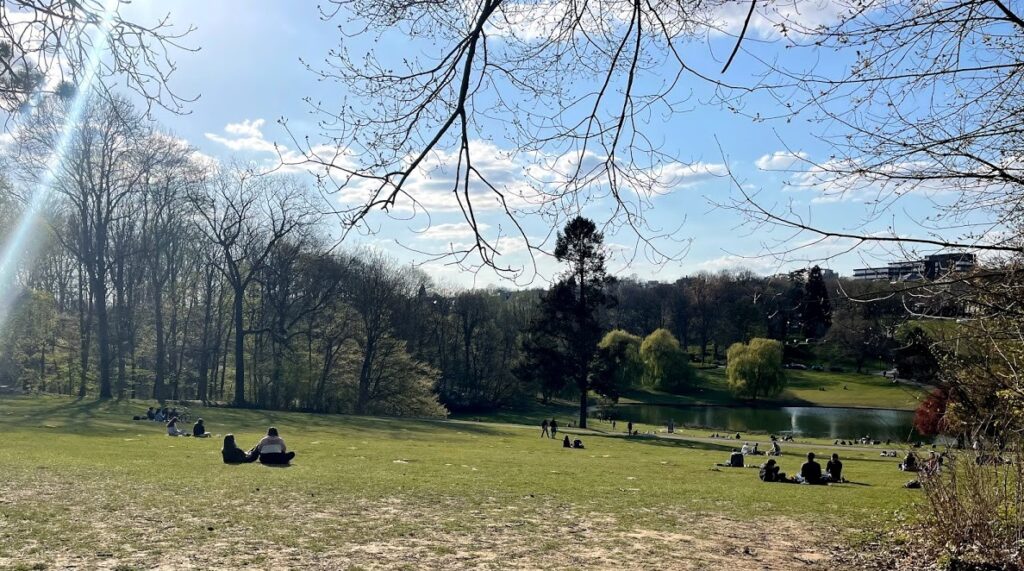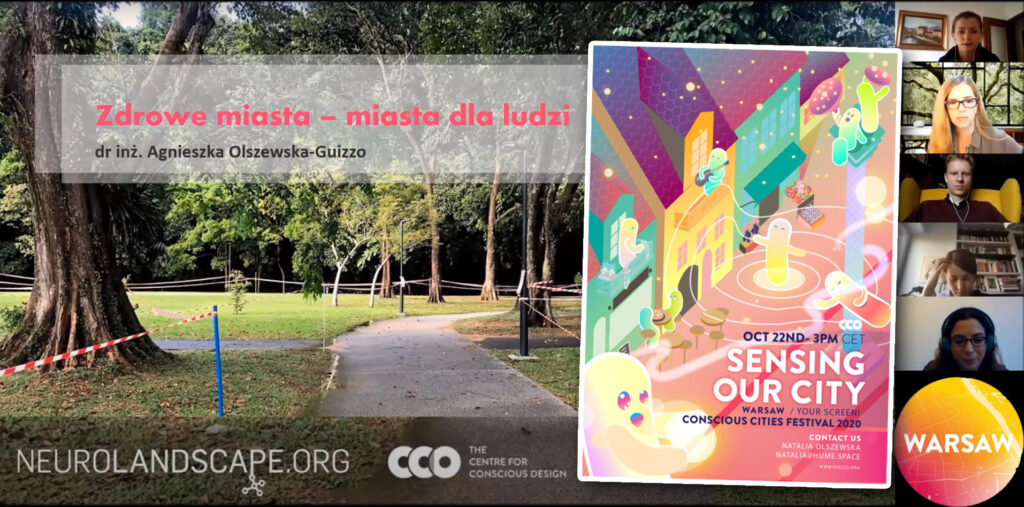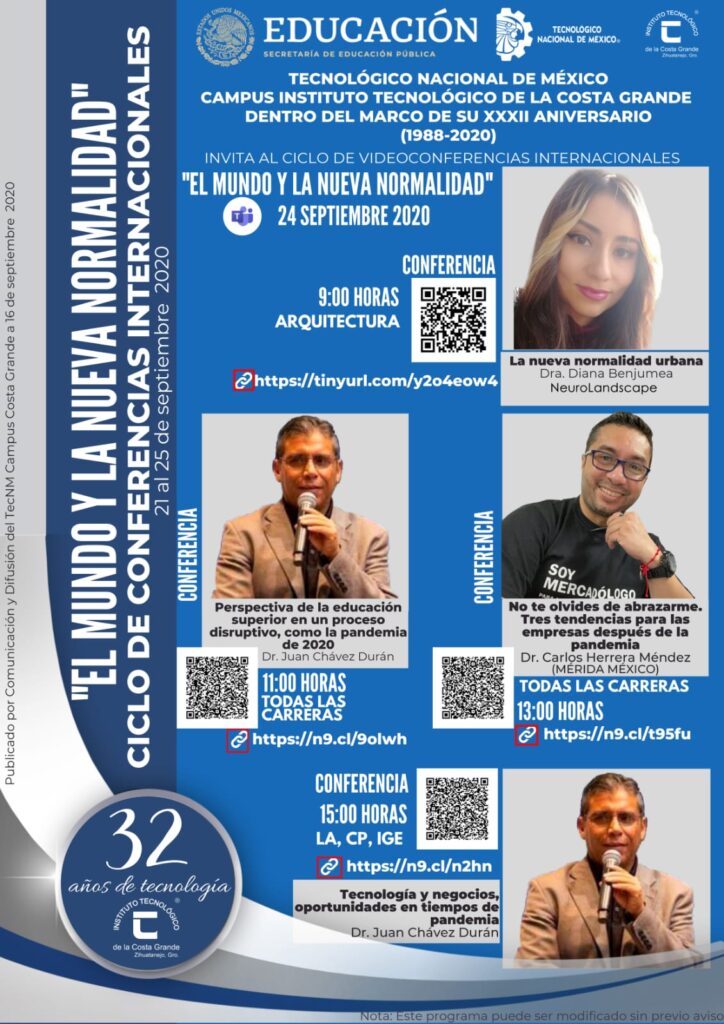NeuroLandscape is delighted to announce its participation in the consortium selected for the prestigious Horizon Europe GreenME project with a budget of nearly 6M euro. This collaboration presents an exciting opportunity to advance our mission of integrating nature-based solutions into urban environments for enhanced well-being and sustainable living. Led by Universita Autonoma de Barcelona, the Read More
Tag: mental health
Zielone miasta a prawo do zdrowia i zdrowia psychicznego | Webinar in Poland
On June 1, 2022, a meeting with Dr. Agnieszka Guizzo was held on the relationship between green spaces in the city and mental health. The webinar covered topics such as the impact of the living environment on health and mental health; how the right to mental health can be violated by bad design decisions; ways Read More
Innovate 4 Cities 2021 | UN Habitat Conference
Tuesday 12 October at 15:45 CEST. Dr. Agnieszka Olszewska-Guizzo has presented her insights at the session 5H: Green spaces for healthier cities, which was fully recorded and available online: https://www.youtube.com/watch?v=df16SGuCO1w The Conference, co-hosted by #UNHabitat and #Mayors4Climate, brings together innovative research and science to help cities tackle #ClimateChange challenges. The global five-day virtual #I4C Conference covering #Science and #Innovation partnerships driving inclusive, resilient, and climate-neutral #cities, runned Read More
Mental Health in Slums – the Case of Bangladesh Among Other Developing Countries
The share of the world’s population living in urban areas has been predicted to increase from 55% in 2018 to 60% in 2030 (UN, 2018). Every year people move to the urban areas from villages for various reasons. If we try to see this urban-rural migration under the push-pull model, push factors from rural end Read More
How can VR improve mental health
Eascape, a new VR relaxation app created by neuroscientists and landscape architects, makes it possible to benefit from the healing power of nature without leaving home. The test version of the app has just been launched, as the whole world deals with the consequences of coronavirus waves and lockdowns. It is not a coincidence. In Read More
Simply Green is Simply not Enough – a Prelude to Mentally Healthy Cities
The fast-paced urbanization and disconnection of people from nature and the current series of lockdowns, contribute to an increasing burden of mental health disease in cities. Researchers have estimated that it is 39% more likely to develop depression when living in urbanized areas as compared to rural regions [source]. Other mental illnesses and neurodegenerative disorders Read More
Networks of Nature: Integrating Urban Farming in the city Fabric
Our programme Planting Seeds of Empowerment Mental Health and Well-being of the Communities starts this year with a new project created in collaboration with international organisations to emphasise the importance of nature in the mental health and well-being of people residing in heavily urbanised cities. The project entitled: Networks of Nature Integrating Urban Farming in Read More
NeuroLandscape featured in BBC “My Perfect City”
NeuroLandscape featured in BBC “My Perfect City” Series episode which was released on: 30 Dec 2020 New episode of the BBC World Service “My perfect city” features Dr Agnieszka Olszewska-Guizzo among other experts. They discuss Singapore as a city which attempts to improve residents’ mental wellbeing through urban design. Generally, people in cities are likely Read More
Healthy Cities – Cities for Humans, Conscious Warsaw 2020 (VIDEO)
A speech presented during the “Conscious Warsaw – Sensing our City” webinar organized by the Center for Conscious Design, which took place on October 22, 2020, in Polish (English subtitles available in this video!). Dr. Agnieszka Olszewska-Guizzo presented a new concept of designing mentally healthy cities based on contact with salutogenic natural landscapes (Contemplative Landscapes) Read More
The New Urban Normal_Dr Diana’s speech at TecNM (Mexico)_VIDEO
24th September 2020. Tecnológico Nacional de México, campus Costa Grande, hosted an online event addressing the World New Normal in the interdisciplinary lens. Dr Diana Benjumea gave a speech regarding architecture and urban planning, where she sets a new paradigm of bottom-up, evidence-based urban design. Moreover, she introduces NeuroLandscape projects and explains the global implications Read More


